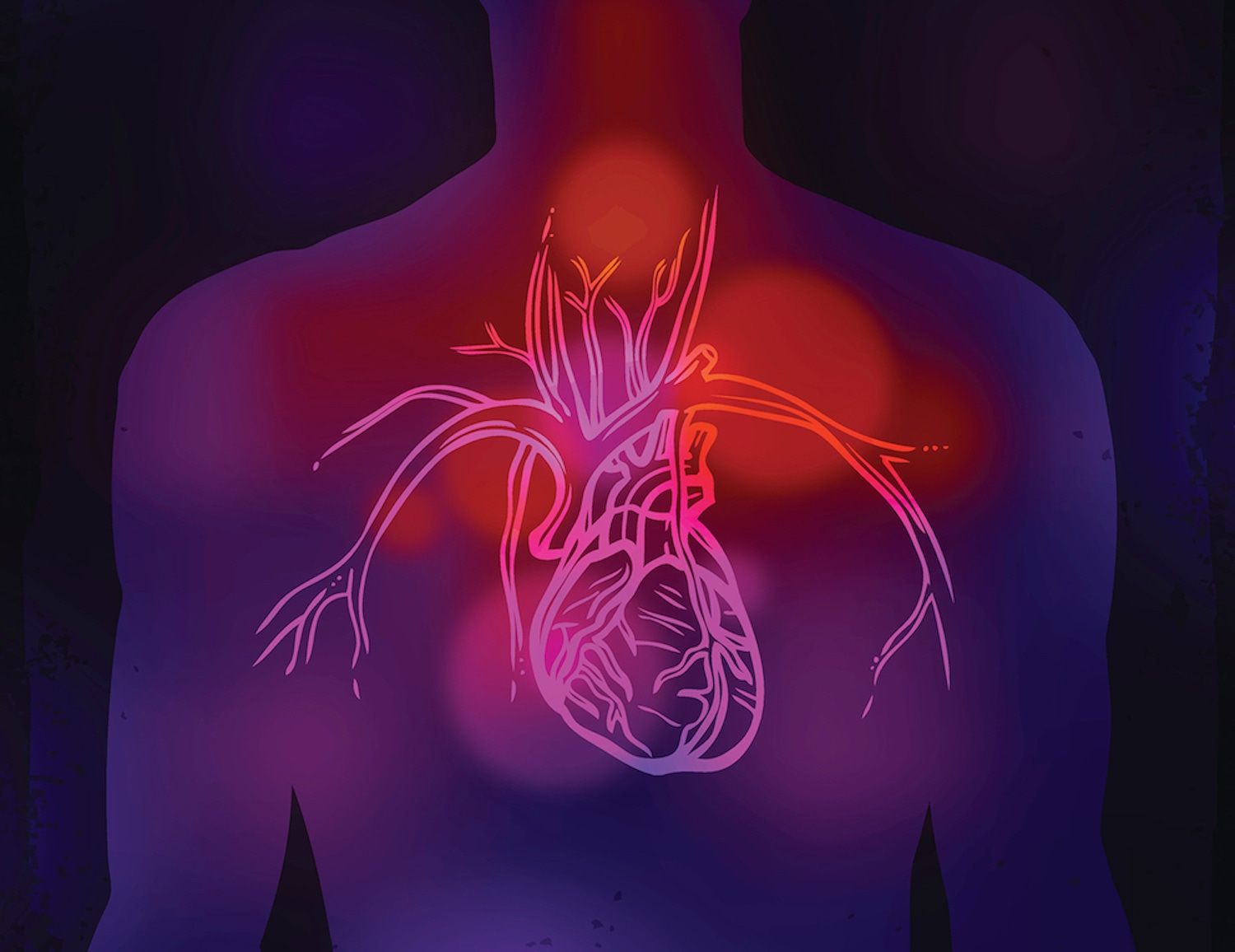Newly diagnosed cancer patients are at increased risk of having a stroke or heart attack, according to a recent study. In the first six months after diagnosis, cancer patients were more than twice as likely to have a stroke or heart attack than patients who did not have cancer.
The study, published in the Aug. 22, 2017, Journal of the American College of Cardiology, compared the risk of stroke and heart attack in 279,719 newly diagnosed cancer patients to that of 279,719 people covered by Medicare who did not have cancer. The cancer patients had been diagnosed with bladder, breast, colorectal, gastric, lung, pancreatic or prostate cancer or non-Hodgkin lymphoma. Collectively, these eight cancers account for about 64 percent of all cancer diagnoses in the U.S.
Learn about the signs of a stroke and heart attack.
Stroke
The study found that 4.7 percent of the cancer patients had had a stroke or heart attack within six months of diagnosis compared to 2.2 percent of the Medicare beneficiaries. The risk was higher for patients with more advanced cancers than it was for those with early-stage cancers. Risk varied by cancer type, with 8.3 percent of lung cancer patients experiencing a stroke or heart attack, compared to 2.3 percent of prostate cancer patients.
“We can’t tell whether the cancer, the treatment or other factors are causing this heightened risk,” says Babak Navi, a vascular neurologist specializing in cancer and stroke at Weill Cornell Medicine in New York City, who led the study. “In the first six months to a year after diagnosis, cancers are the most active and treatments are the most intense.”
Cancer and heart specialists have been aware of the higher risk for heart damage. But “the risk of blockages in arteries is a new realization for us,” says Javid Moslehi, a cardiologist who directs the cardio-oncology program at Vanderbilt University Medical Center in Nashville, Tennessee. He says newly diagnosed cancer patients who have traditional risk factors for cardiovascular disease—such as high blood pressure, high cholesterol, diabetes, obesity, smoking and a sedentary lifestyle—may be at higher risk of having a stroke or heart attack than newly diagnosed patients without these other risk factors.
“There’s a growing realization that cancer patients are at risk for vascular problems,” Moslehi says. “We want to help oncologists reduce that risk.”
Cancer Today magazine is free to cancer patients, survivors and caregivers who live in the U.S. Subscribe here to receive four issues per year.





